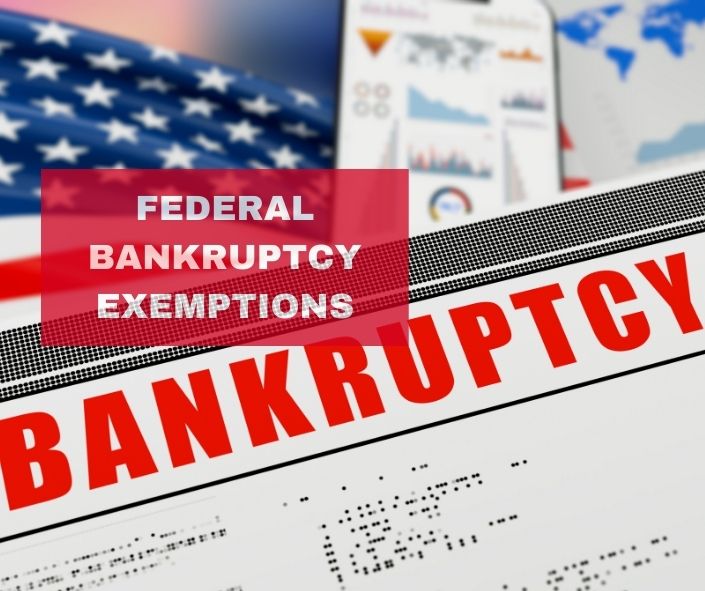People often fear filing for bankruptcy because they fear losing everything. But the law lets you keep “exempt” property you need to live and work. You can use either state or federal bankruptcy exemptions in some states.
Talk to an experienced bankruptcy lawyer to find out what exemptions you can use in your state.
States That Allow Federal Bankruptcy Exemptions
 What States Allow Federal Bankruptcy Exemptions?
What States Allow Federal Bankruptcy Exemptions?
You can choose either your state’s bankruptcy or federal bankruptcy exemptions in the following states:
- Minnesota
- Rhode Island
- Hawaii
- Connecticut
- Alaska
- Arkansas
- Kentucky
- Texas
- New York
- Oregon
- Wisconsin
- Pennsylvania
- Washington
- District of Columbia
- New Hampshire
- New Mexico
- New Jersey
- Vermont
- Michigan
- Massachusetts
States not included in this list do not allow you to use federal bankruptcy exemptions
Are State Or Federal Bankruptcy Exemptions Better
You have to pick either state or federal bankruptcy exemptions, not both exemptions. So, choose the exemptions that protect the assets that you value the most. Talk to your bankruptcy lawyer to help you compare what each system protects so that you can pick the exemptions that work for you.
You cannot move to another state with more generous bankruptcy exemptions in an attempt to benefit from that system. You have to live in a state for two years before you are eligible to enjoy their exemptions.
Homestead Exemption And How It Protects Your Home
Exemptions are not supposed to help you retain a lavish lifestyle, they can only protect your property up to a certain value. Focus more on the requirements of each exemption and pay attention to how much property the exemption will protect.
For example, the federal homestead exemption will only protect up to $27,000 of your primary home’s equity, which means you may need to consider the state’s exemption system if your home has more equity.
This is because your state’s homestead exemptions may be more generous. In some instances, the person filing for bankruptcy can keep the property regardless of its value. This includes health aid and government benefits.
What Happens To Non-Exempt Property?
The property that cannot be protected by either state or federal exemptions in a Chapter 7 bankruptcy will be sold by the trustee. The trustee uses the proceeds from the sale to pay the creditors. But in a Chapter 13 bankruptcy, you are allowed to keep all your property, because you have to pay your creditors the value of your nonexempt property.
For example, If your car is worth $2,500 and you used the federal bankruptcy exemptions which cover up to $4,450 to protect your car, filing Chapter 7 bankruptcy will result in you keeping the car because the exemptions cover your car’s equity fully. In Chapter 13, you also get to keep the car and don’t need to include it in your repayment plans.
But if the car was worth $10,000, the Chapter 7 bankruptcy trustee will sell the car and pay you $4,450 for the exemptions and give your unsecured creditors the remaining amount. In Chapter 13, if the car was worth 10,000, all you need to repay is about $5,450 or a little more.